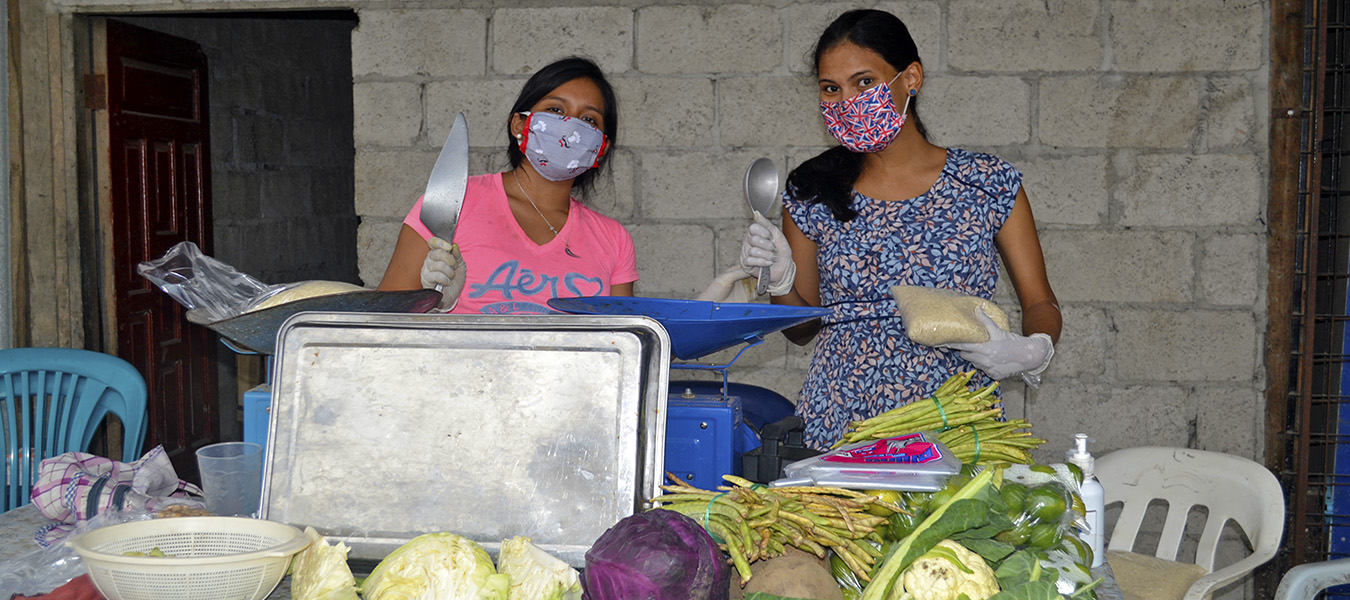
With businesses closed and supply chains disrupted by the pandemic, rural communities faced dire shortages of food, medicine, and protective equipment
When the Covid-19 pandemic struck, Ecuador’s lockdown shuttered businesses, suspended classes, cancelled visits to the reserve, and suffocated the local economy. People were in trouble, and looking for help. Thanks to an international outpouring of support, Ceiba was able to leap into action to assist those most in need. Our network of contacts, and history of collaboration in this remote coastal region, helped us mount a targeted response within weeks of the pandemic striking Ecuador. We mobilized our staff and joined forces with local shops and markets to assemble and distribute relief kits to over 200 of the neediest families. The kits included pounds of fresh vegetables, dry beans, and rice, as well as much-needed soap and surgical masks. All of us at Ceiba send a heartfelt “Muchas Gracias!” to our generous supporters who made timely contributions to this life-sustaining response.
International financial aid supported local reconstruction crews, providing much-needed employment in this hard-hit region
On April 16, 2016, a 7.8 magnitude earthquake devastated the coast of Ecuador. More than 600 people perished and in some towns, like Jama and Pedernales, up to 90% of buildings were damaged or destroyed. The epicenter was located just 33 miles from Ceiba’s Lalo Loor Dry Forest Reserve; our staff and volunteers fortunately were unharmed. The villages of Tabuga and Camarones, nearest the reserve were gravely affected; our friends and neighbors with whom we have worked for over a decade had their entire lives upended in a matter of seconds that fateful Saturday evening.
Thanks to an amazing outpouring of support from hundreds of people across the globe who contributed through our YouCaring campaign, Ceiba and two other organizations in the region (Third Millennium Alliance and Finca Mono Verde) were able to mobilize immediate relief. Within two days, working day and night with volunteers in Quito, we had filled trucks full of food, water, medicine, and temporary shelter supplies and brought them under police escort to the affected area.
Because of our proximity and history with these communities, we at Ceiba found ourselves thrust into the role of humanitarian aid organization, and the Lalo Loor Reserve became a the ad-hoc center for coordinating the relief effort. By sheer coincidence, one of our board members, Stephen Webster, worked for over 30 years in disaster relief and recovery, so we had the good fortune of excellent guidance and leadership throughout the process. As relief transitioned to recovery, Ceiba has helped people have put their lives back together, facilitated by the continued support of international donors. For people already living in poverty, the damage caused by the earthquake represents an economic setback that can seem insurmountable. Not only is it hugely expensive to rebuild a home, but the damage to business and infrastructure caused many people lost their jobs. Tourism to the region came to a screeching halt. This is why financial assistance is so vital. But recovery represents more than just paying to repair the damage; it also represents an opportunity to rebuild a more resilient community that will be better able to resist such disasters in the future. Ceiba has worked with local leaders to envision a better, more sustainable community, identify available assets and resources, plan specific actions, and build the local capacity required to convert those plans into reality.